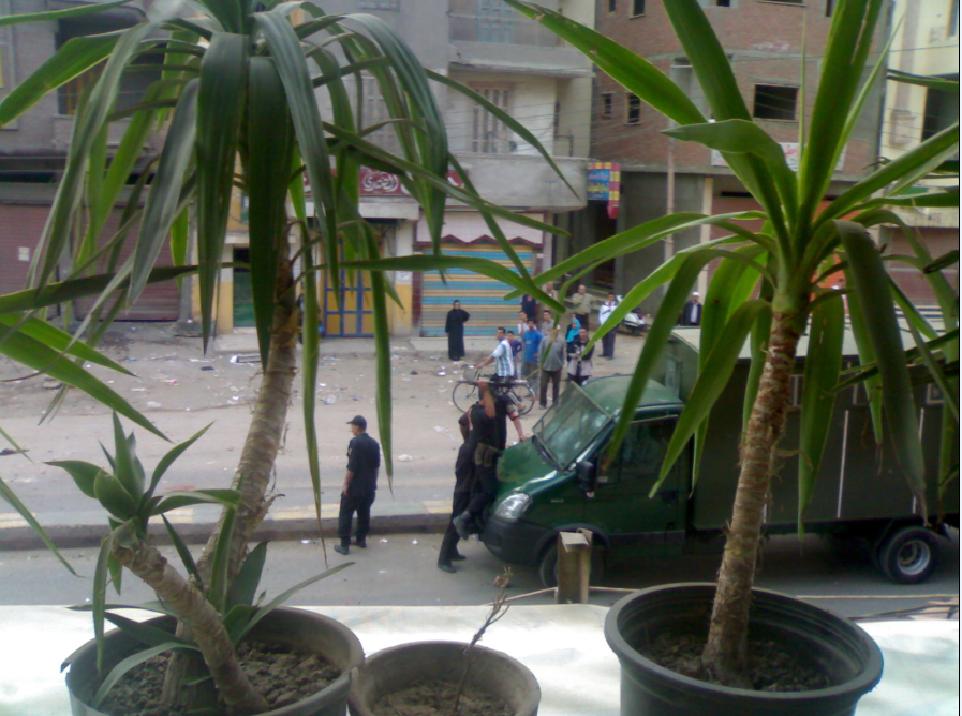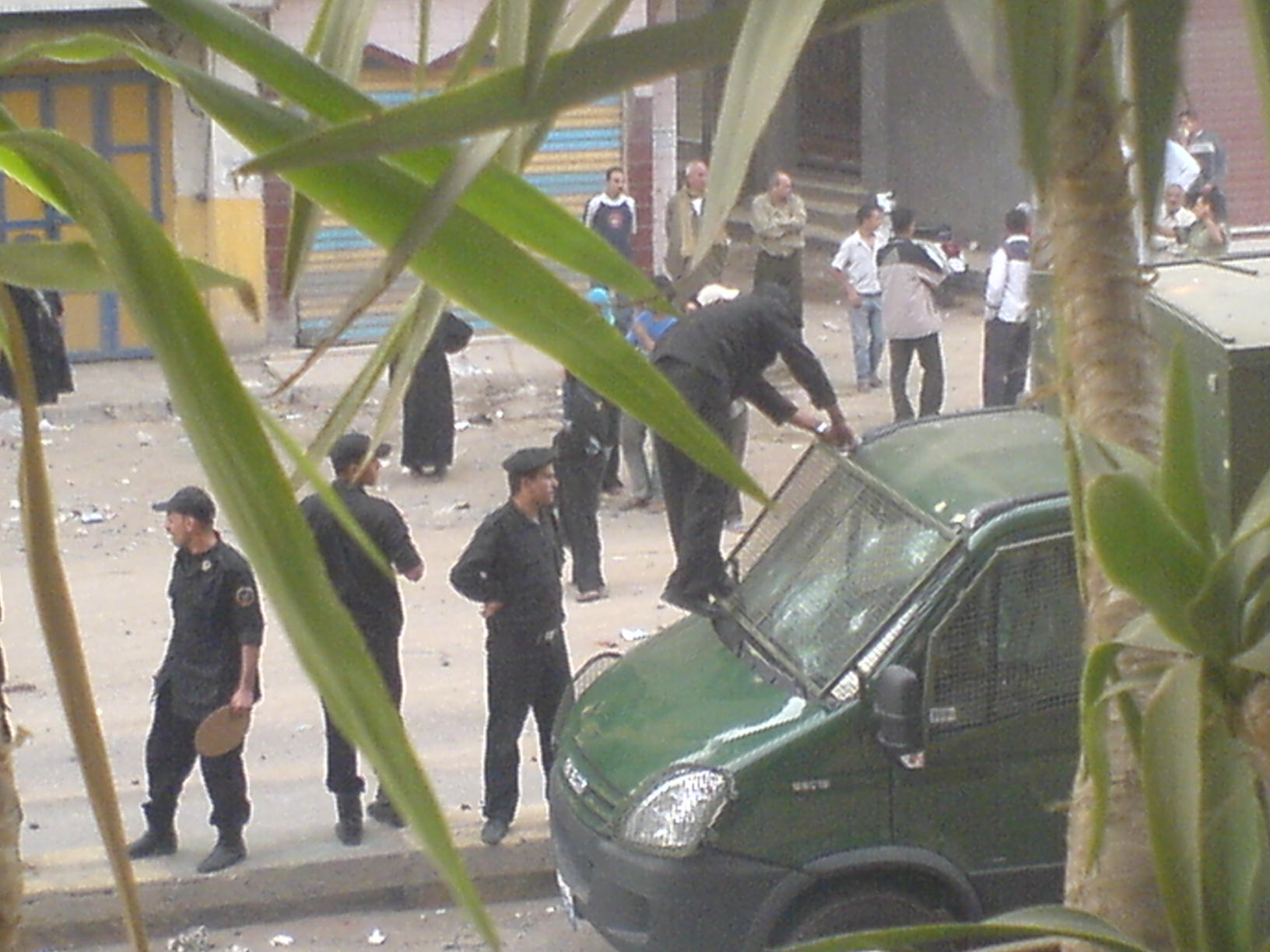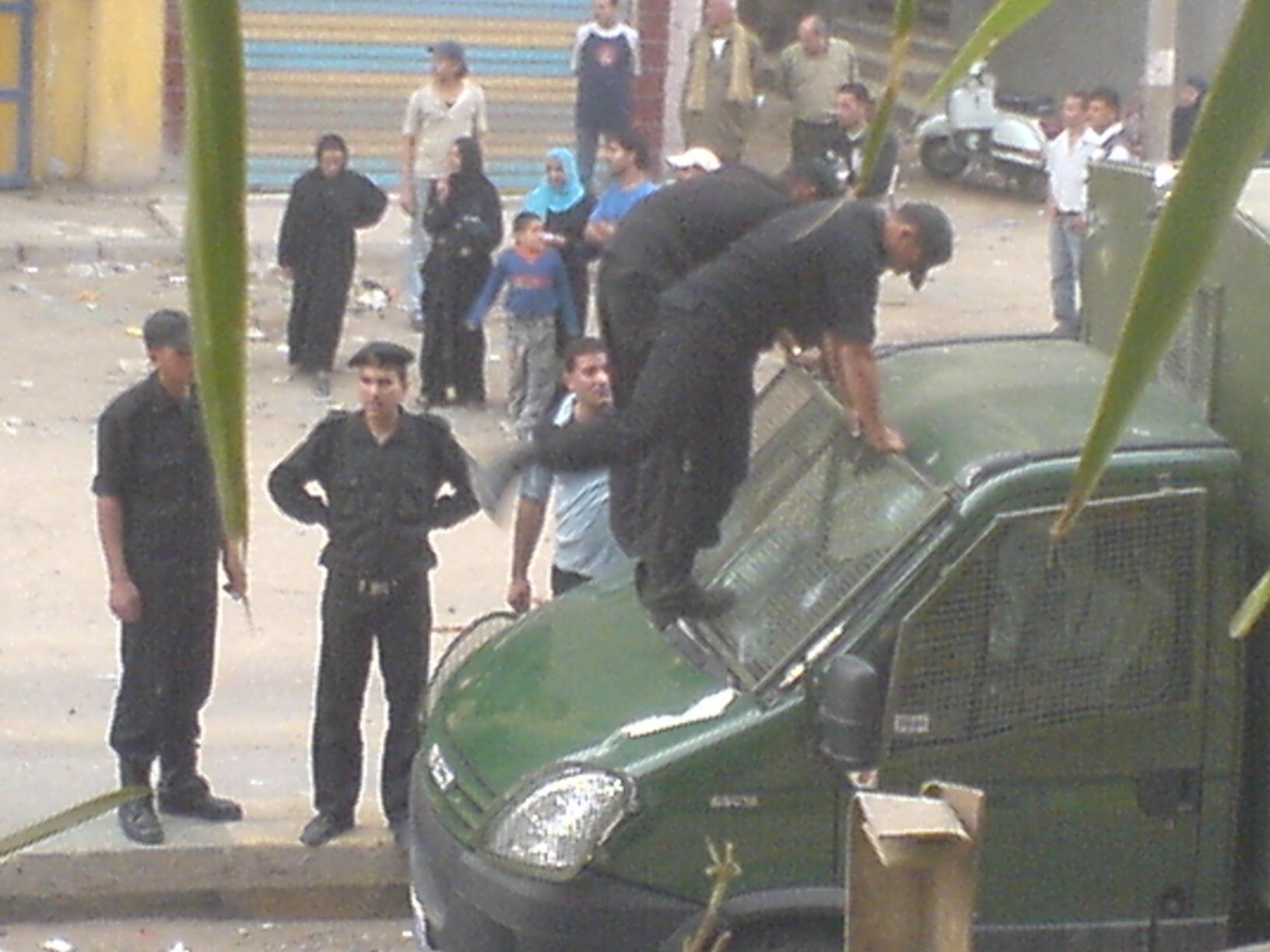As expected, yesterday’s “Facebook Strike” was a failure.. I hope our peers in the activist community will wake up and realize now the limitations of online activism. Let’s get back to organizing on the ground, fellow bloggers, and leave behind these cyber-fantasies.
Egyptians largely ignored a call by online activists for a general strike Sunday to protest against the government on President Hosni Mubarak’s 80th birthday.
Analysts said the failure showed the limited influence of activists organizing on social networking site Facebook after their successful strike last month generated enthusiasm that a new form of political protest was emerging in the Arab world’s largest nation.
Veteran political analyst Mohammed Sayyed Said sees the networking sites as excellent tools for political discussion. But he said the “total failure” of this strike showed their inability to connect with the common people here.
“The advantages were very clear,” he told The Associated Press. “Several thousand people were debating an issue, which is extraordinary by any standards. … But when it comes to touching cause with the public, it’s a different story,” said Said, who is also editor of the independent Badeel newspaper.
Only 8 percent of Egyptians use the Internet, according to the International Telecommunications Union.
Egypt’s so-called “Facebook party” burst onto the political scene in March when a group set up on the site called for a nationwide strike April 6 in solidarity with nation’s dissatisfied workers. It quickly garnered 60,000 members.
The lack of traffic and nearly empty schools and universities on that day suggested that the online advocacy had convinced many Egyptians to express their dissatisfaction over low wages and rising prices.
But the response may have had more to do with the fact that workers at the country’s largest textile factory in Mahalla el-Kobra had already decided to strike that day and they had popular sympathy.
Still a flurry of local and international media reports hailed what they said was a new method of political opposition to subvert heavy state restrictions on dissent.
Buoyed by their success, the Facebook group called a second strike for Sunday to coincide with the president’s 80th birthday. They are demanding legislation to raise wages, control prices and battle corruption.
“Everybody is suffering, if not from corruption, then from prices hike,” said Ahmad Maher, a construction engineer who helped set up the Facebook group. “All want a change to take place in Egypt.”
Inflation in Egypt reached 14.4 percent annually in March, making life even more difficult for the 20 percent of the country’s 76.5 million people who live below the poverty line of about US$2 per day. In the last two months, eleven people have died in clashes while standing in line to buy subsidized bread, according to police.
Activist Hossam el-Hamalawy, a left-wing blogger with close ties to the labor movement, dismissed their efforts ahead of the strike in what proved to be prophetic criticism about the limitations of the group.
“A few bloggers sipping coffee … in downtown Cairo cannot bring about this general strike,” he wrote on April 27.
El-Hamalawy argued that only groups with deep links to the people, such as some of the labor organizations in Egypt’s vast public sector factories, can pull off a successful strike and pressure the government.
“A group of ‘Facebook activists’ cannot also mobilize for it,” he wrote on this blog. “Neither are the current opposition groups all together.”
In the capital Cairo on Sunday, it was business as usual with snarled traffic and busy commuters filling the streets despite the strike call.
You can continue reading Paul Schemm’s and Maggie Michael’s AP report here. And here’s also a report by Sarah Carr on the downtown Cairo protest:
Protesters gathered outside the Lawyers’ Syndicate yesterday and called for an end to the rule of Egyptian President Hosni Mubarak, on his 80th birthday.
Around 40 people took part in the demonstration on the steps of the Syndicate, the only protest in the capital on a day when activists on Facebook had called for a general strike throughout Egypt.
The call was made last month, a few days after another general strike called for by opposition groups on April 6 in solidarity with textile workers at Ghazl El Mahalla who had announced their intention to strike.
Ahmad has some pix too of the Kefaya students’ demo at Assiut University.
Again, let’s get back to organizing on the ground. The general strike is coming, but will come from below, not from above and certainly not from the cyberspace. I urge you all to read this classic by Rosa Luxembourg: “The Mass Strike” [available in Arabic here]. Be patient as you decipher names and events that took place a century or two ago. The politics and dynamics of the mass strikes are still the bloody same.
And please also take time to read the Center for Socialist Studies statement re the April events and Comrade Yehya’s article in the Lebanese Al-Akhbar.
We should be grateful we have today all these technological resources that didn’t exist for the 19th and 20th Century revolutionaries. But this technology should be complimentary and a logistical support for whatever we do ON THE GROUND. I’m neither depressed nor demoralized about yesterday. I never believed it’s gonna work. I hope others do not get demoralized either. This enthusiasm among the youth for strikes and bringing the country to halt as a means of toppling the dictator is a positive phenomenon, yet should be channeled into reaching out to those workers in the factories in the Nile Delta as well as the urban poor in the slums. These workers and urban poor are NOT on Facebook, and I’m afraid I don’t expect them to be on it anytime soon. They will only listen to and liaise with bloggers and activists they see in person. So, Let’s focus on reality and not virtual reality.
Down with Mubarak… Down with the Ministry of Torture… Power to the Egyptian Workers…



